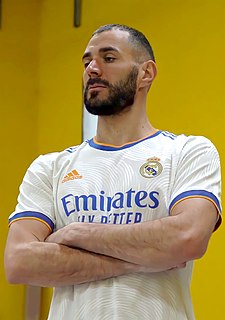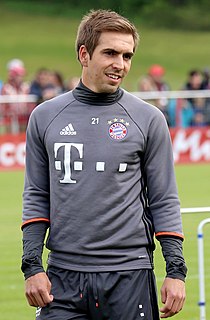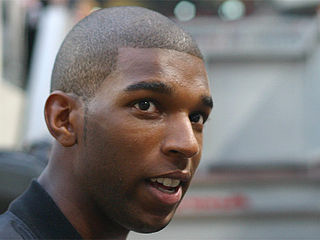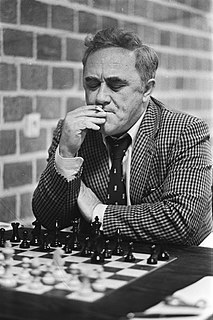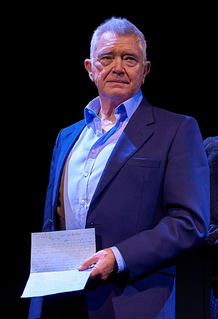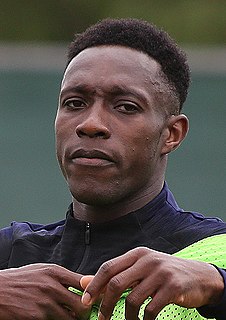A Quote by Karim Benzema
I started with Paul Le Guen. He told me to double up in positions if he was missing a left back or a midfielder. From that moment, it was clear in my mind that I would be a professional footballer, and I began working even faster to get there.
Related Quotes
Do you remember the summer we signed you up for camp? And the night before you left, you said you've changed your mind and wanted to stay home? I told you to to get a seat on the left side of the bus, so when you pulled away, you'd be able to look back and see me there waiting for you." I press her hand against my cheek, hard enough to leave a mark. "You get that same seat in Heaven. One where you can watch me, watching you.
My father told me never to take my foot off a ladder to kick at someone who was kicking at me. When I did that, I would no longer be climbing. While they are kicking, my father told me, I should keep stepping. They can kick only one time. If I continued to climb, they would be left behind. In trying to hurt me, to impede my progress, they would get left behind because they allowed themselves to get sidetracked from their agenda.
My very first professional job was with a theatre company in 1965 and the first job they gave me was literally shovelling sh*t. I was an assistant stage manager and they told me to clear out the prop store. I opened it up and no-one had been in there for 25 years and it was inches deep in rat sh*t. So before I could get anywhere I had to clear it up. I thought, 'All these years of training, the best drama school in the world, and this is what I'm doing.'
When she left for a third time and returned with a giant box, I started to get irate. "What is this?" I demanded, taking it from her. It felt like it had bricks in it. "Grandmother needs you to carry some things," Paul told me. "Yes," I said through gritted teeth. "I sort of figured that out fifty pounds ago.
I felt that film (Let It Be) was set up by Paul for Paul. That is one of the main reasons the Beatles ended. I can't speak for George, but I pretty damn well know we got fed up of being sidemen for Paul. After Brian died, that's what happened, that's what began to happen to us. The camera work was set up to show Paul and not anybody else. And that's how I felt about it.
I made up my mind long ago to follow one cardinal rule in all my writing-to be clear. I have given up all thought of writing poetically or symbolically or experimentally, or in any of the other modes that might (if I were good enough) get me a Pulitzer prize. I would write merely clearly and in this way establish a warm relationship between myself and my readers, and the professional critics-Well, they can do whatever they wish.
Another thing I like to say to my students is this: "How many Corinthians read Paul's letters?" The answer is none. They couldn't have cared less! There aren't even any Corinthians left, but Paul's letters persist. Paul was not a professional writer. He was called to something, and he sent his letters. That's a good way to look at it. That you might be making something that nobody cares about, but you have to do it. It's not that people should care, but that you should care.
The teacher would say, 'Not everybody makes it as a footballer, so what do you want to be?' I'd say, 'A footballer.' The teacher would say, 'But not everybody makes it. So what do you want to be?' I'd say, 'A footballer.' Every year that happened! Nothing was going to get in the way of me being a footballer.
